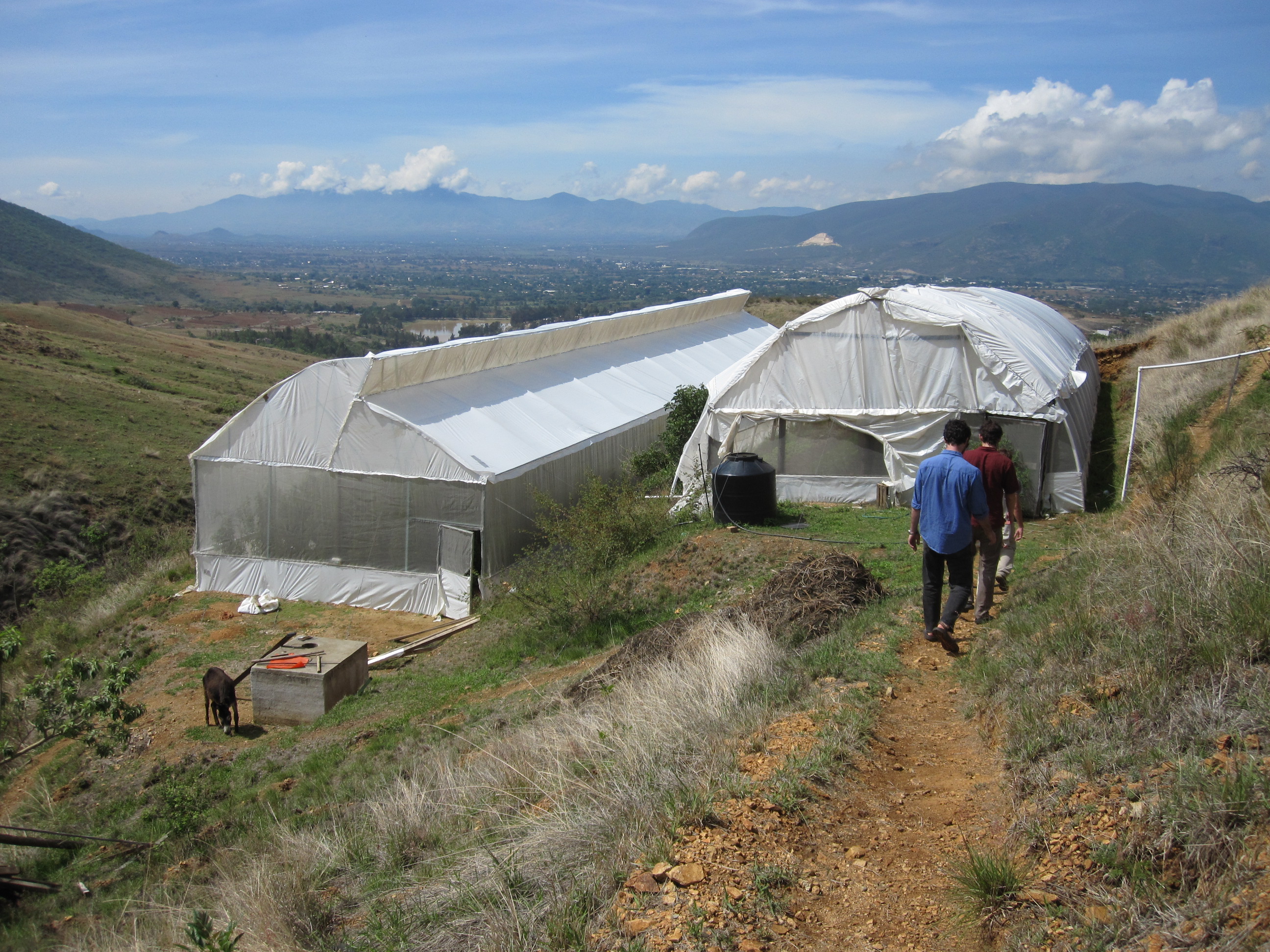Queridos amigos:
Along with Nolan and Simon, I am interning with the Institute of Nature and Society of Oaxaca (INSO) in Oaxaca, Mexico. I have been with INSO for almost a month now, and time is flying! I have been learning a lot, but I have also been inundated with so much information it is almost unreal.
I will begin describing INSO (http://insooaxaca.com/insoeng.html), although let me caveat that I am still coming to know INSO’s myriad projects. Basically, INSO is a small Oaxacan non-profit with the mission of pursuing theoretical approaches to conservation, promoting the exploration of nature and society through research, and supporting the implementation of alternative technologies. Most recently, INSO has been working on water issues in Oaxaca—here water is in short supply and demand is only growing. INSO, therefore, is seeking sustainable ways to supply water to all of the regions’ inhabitants while also encouraging water conservation practices. Unlike similar efforts in the past, INSO is dedicated to bringing all stakeholders to the table—community members, private organizations, NGOs, government, etc.— to find collaborative and comprehensive solutions to water issues.
But where does that leave me? Well, I have been helping out with many projects since my arrival last month. First, Mara, Nelly (my main INSO counterpart), Simon, Nolan, and I have begun our 2011 Oaxaca Water Sampling Frenzy (I just made that name up). We have been extremely busy organizing data, purchasing and maintaining equipment, making GIS maps, getting directions, and actually going on water sampling excursions. It has been a little chaotic at times, but it has also been a lot of fun. Despite Mara already returning New York, we are very excited and hopeful that we will finish the sampling season with both a robust set of data (comprised of many scientific parameters measuring water quality and flow) and well-worn rain boots. With this data, we and Juan José, INSO’s director, will be able to draw conclusions about what kinds of conservation projects should be taken on and what parts of the watershed should be prioritized.
In addition to coordinating and carrying out the Water Sampling Frenzy, I have been up to my elbows in Spanish. I never thought I would say this (especially if you asked me last fall), but thank goodness for my Spanish degree! I have kept busy translating documents from Spanish to English both for INSO and for my peers, which has served not only to introduce me more to INSO, but also to teach me all of the environmental Spanish vocabulary I ever wanted to know. I am becoming quite familiar with words like el alcantarillado (sewers) and los invernaderos (greenhouses). Along with translating documents, I have also utilized my Spanish in order to attend and (mostly) understand several meetings with INSO staff. Most notably, I attended the latest Oaxacan Water Forum meeting, where Oaxacans from all different walks of life convened to discuss water issues and solutions. This was extremely interesting to me, as I am thinking about writing my thesis on some aspect of the Water Forum and its ability to actually affect policy.
Finally, I feel I should close by pointing out that now marks a little bit of a transition period in my internship here at INSO. Beginning this week, Simon, Nolan, and I will be spending a lot more time at El Pedregal, INSO’s permaculture demonstration center. We will be helping out with construction projects (i.e. building micro dams) and we will be preparing for the arrival of two groups of American high school students. The students will be visiting and working at El Pedregal for four days each in order to learn more about INSO’s many conservation projects. As native English speakers, we will be charged with helping translate, supervise, and coordinate the trip—it’s going to be a blast!
Well, I hope that all of my fellow Bard CEPers are doing well and I look forward to seeing more blog posts from everyone! Happy summer and hasta pronto!
Saludos, Michelle


